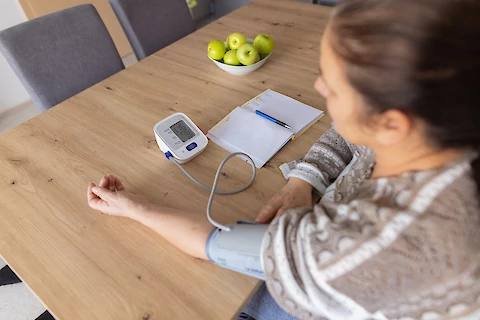
Monitoring blood pressure is a fundamental aspect of maintaining overall health, particularly for seniors. Elevated or low blood pressure levels can signify underlying health issues, making regular checks an integral part of preventive healthcare. This comprehensive guide teaches seniors to effectively track their blood pressure and the importance of regular checks. Discover best practices for accuracy and guidelines on when to consult healthcare providers.
Deciphering Blood Pressure
Blood pressure is the force exerted by your blood against the walls of your arteries as your heart pumps. Maintaining normal blood pressure levels is vital, as persistent high or low readings can lead to serious health issues. Hypertension, or high blood pressure, can increase the risk of heart disease and stroke. Low blood pressure, though less common, could cause dizziness and fainting, which could result in injury due to falls.
The Importance of Regular Blood Pressure Checks
Regular monitoring of blood pressure for seniors is crucial. It aids in the early detection of changes in blood pressure, helping to prevent complications such as heart attacks, kidney disease, or stroke. It also provides valuable insights into how lifestyle modifications or medications are working, making it a critical part of managing overall health.
Choosing the Right Blood Pressure Monitor
An important step toward effective home monitoring of blood pressure is choosing a suitable device. Opt for a monitor that is easy to use, with clear, readable displays. Guidelines published by the American Heart Association suggest using a monitor that measures blood pressure at the upper arm for the most accurate results. Many reliable and user-friendly models are available on the market. Consult with healthcare professionals to help you choose the right one for you.
Best Practices for Accurate Blood Pressure Readings at Home
Ensuring accuracy in blood pressure readings starts with proper preparation. Avoid eating, exercising, or consuming caffeine or tobacco at least 30 minutes before taking a reading. Spend approximately five minutes sitting quietly before you begin. When you're ready to take your reading, sit on a chair with your feet flat on the floor and your arm resting on a flat surface. The blood pressure cuff should be level with your heart.
Follow the instructions provided with your monitor. It's common to take two or three readings, one minute apart, and then record the results.
When to Reach Out to Healthcare Providers
Abnormal readings could be a sign of a health problem. If your blood pressure is 180/120 mm Hg or higher, wait a few minutes and retake it. If the second reading is just as high, seek immediate medical attention. If your blood pressure readings remain marginally high (above 130/80 mm Hg but less than 180/120 mm Hg) over a period of time, you should contact your healthcare provider. Don't hesitate to communicate with your health provider about any concerns or inconsistent readings.
Seek Further Guidance From Senior Helpers Greeley
Home monitoring of blood pressure allows seniors to play an active role in their health management. Being proactive, understanding the significance of regular checks, practicing correct procedures for measuring blood pressure, and maintaining open communication with healthcare providers are the key factors for effective blood pressure management.
If you are a senior residing near Fort Collins, Greeley, Windsor, or Estes Park, contact us at Senior Helpers Greeley. We are ready to assist you in managing your blood pressure and achieving your best possible health. Stay proactive, stay healthy, and make the most of your golden years.